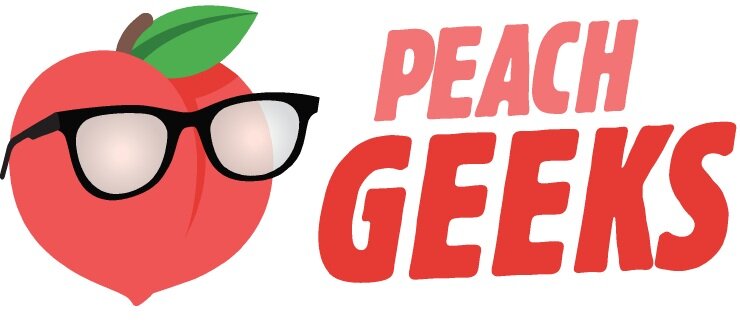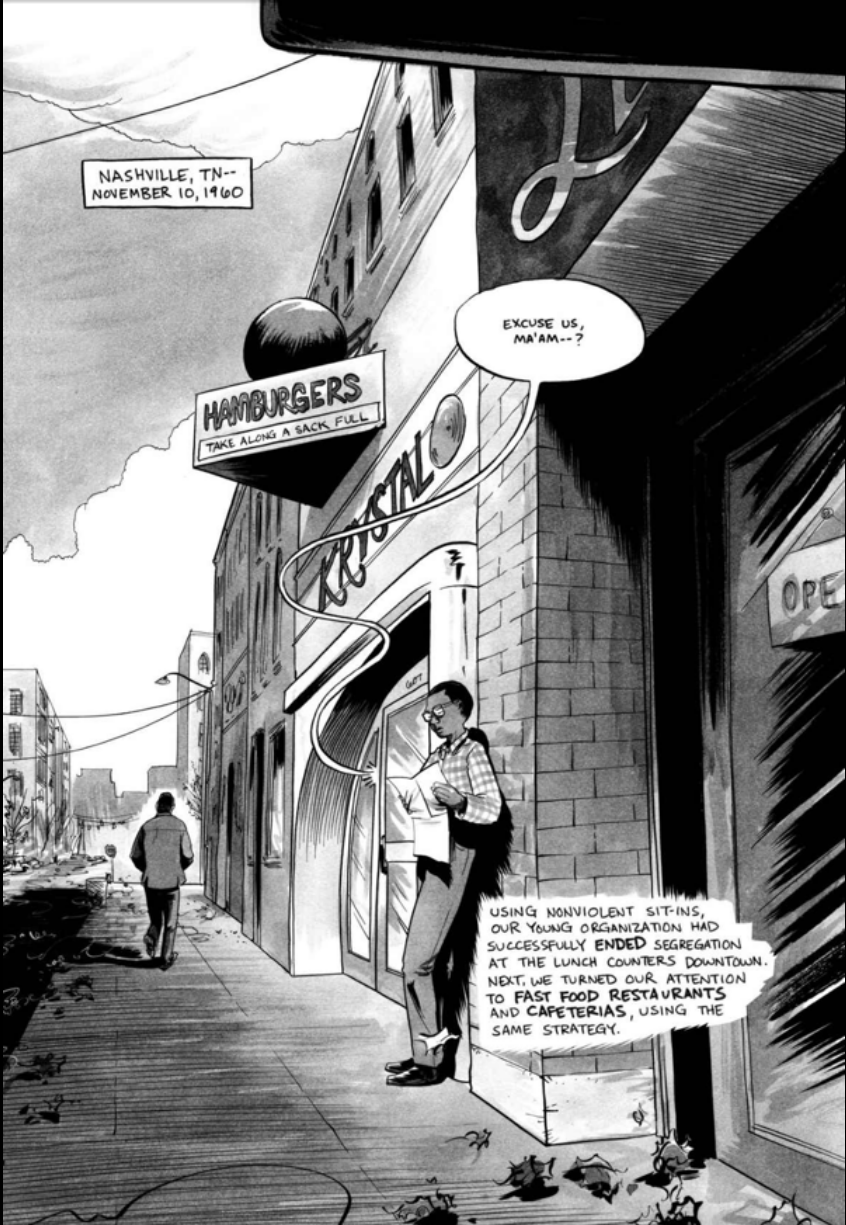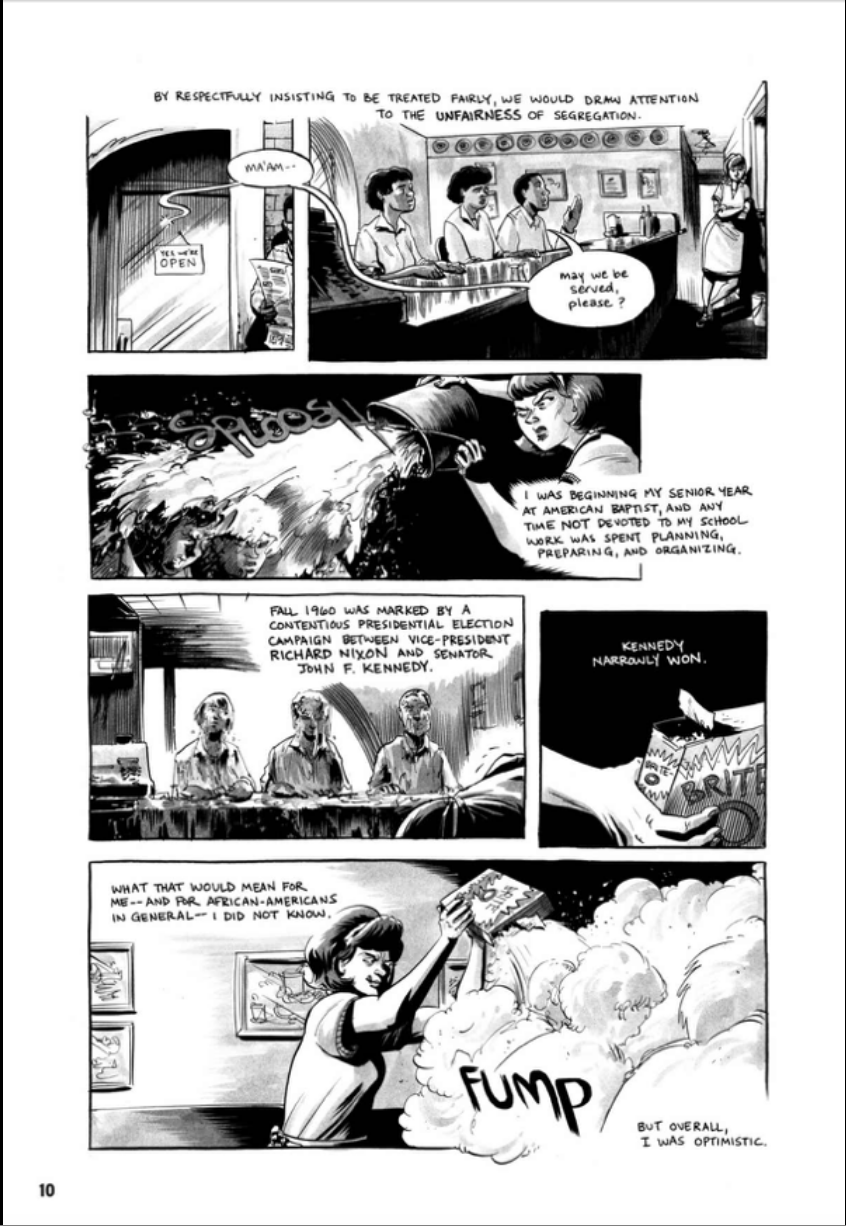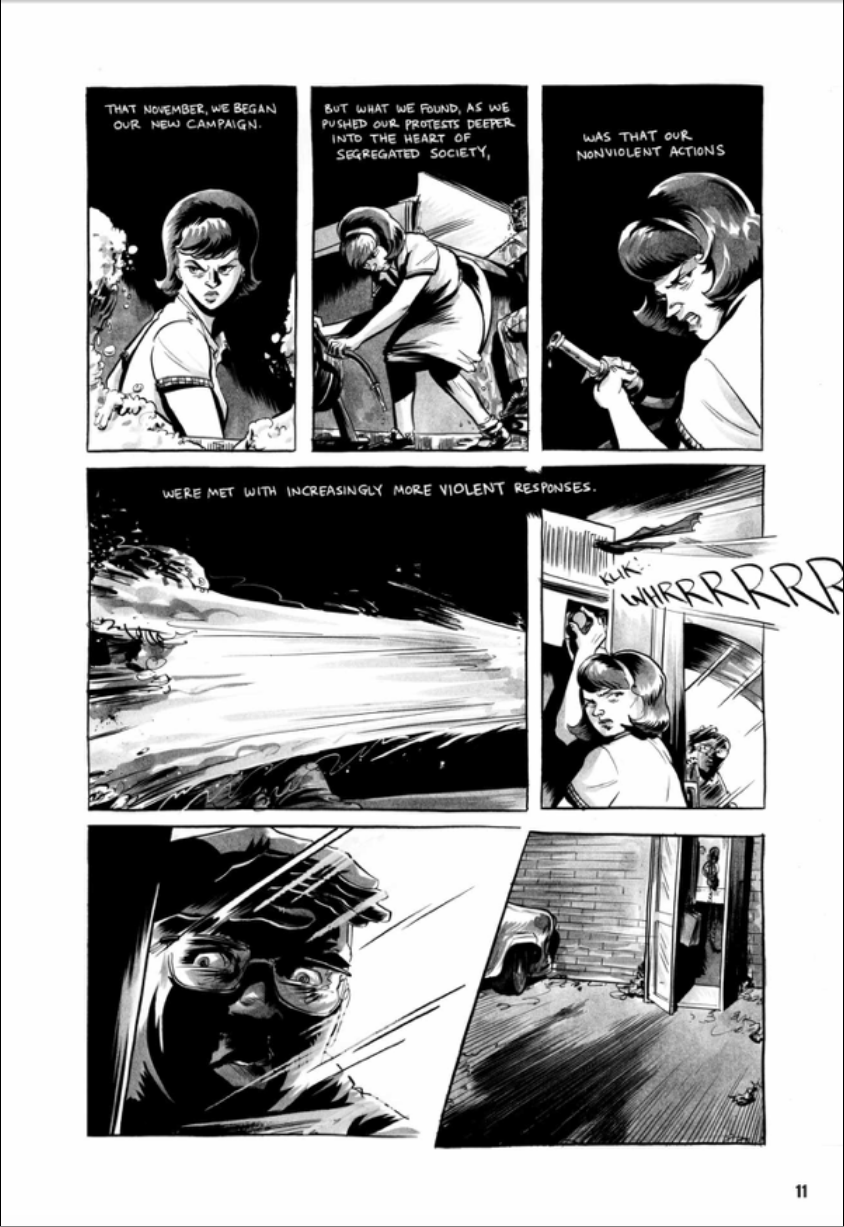March: Book Two
March: Book Two
Credits: John Lewis, Andrew Aydin (writers), Nate Powell (illustrator)
Publisher: Top Shelf Productions
Release Date: January 20, 2015
(Review for March Book One)
From the Top Shelf website on March: Book Two: Jon Stewart's extended interview with John Lewis on the Daily Show (March 9, 2015).
March: Book One was the first review I ever did for Geekundspiel (way back in August of 2016), and after all this time I am finally covering its follow-up in Lewis's trilogy. It's fitting to cover this today as well, the day after John Lewis's 77th birthday.
March: Book Two continues the first book's framing as John Lewis works his way from his D.C. office to the first inauguration of President Obama. This book drops the conceit of Rep. Lewis telling his life story to a pair of curious youngsters, and also returns to the "present day" setting a lot less frequently. When we do find ourselves back in Washington in 2009, it's usually to show a parallel on how far we have come regarding Civil Rights, which become especially jarring as the story sits you in a front-row seat to some of the most aggressive and violent reactions to the movement. Book Two's main focuses are the 1961 Freedom Riders movement up until the 1963 March on Washington, where we are introduced to "The Big Six" (of which Lewis is the only living member). Throughout the book, we are shown graphic depictions of violence against protesters, including beatings, shootings, bombings, and imprisonment, until the book ends with the Birmingham Church Bombing in 1963.
There's really not much more I can say about the quality and importance of this book that I did not say in my last review. The art style, even in black and white, works perfectly to catch the graphic nature of this time period, and never shies away from using the comic medium in an effective manner. There's a fluidity to these illustrations that makes it come to life in a way that simple text could not, and I'm continually shocked at the level of human depravity on display, and the behavior whose only goal was to invalidate an entire race's dignity and rights.
When I reviewed the last book, we were a few months away from the 2016 election. My initial takeaway was the horror in realizing that in a different place and a different time, my friends and I could have been perpetrators of the casual and accepted racism that Lewis, Dr. King, and many others were fighting for. It's amazing what people will justify in their own minds for the sake of supporting the status quo. But now I have read Book Two a month into President Trump's first term, and I realize now that those basic human rights and dignities gained over half a century ago are more at risk than ever. The point is that we cannot normalize the kinds of behaviors that have begun to crop up since the inaugeration. Racism is a cockroach impossible to kill, but that shirks in the sunlight. It is our job to ensure that Racism, sexism, anti-Islamism, and anti-Semitism are continuously called out and denounced. We cannot allow these things to be normalized again. March: Book Two continues to show me, someone born more than two decades after the passing of the Civil Rights Act, that these rights were not given easily or willingly.
Again, I highly recommend picking up March: Book One and Book Two and acquainting yourself with Rep. Lewis's story and the story of the Civil Rights movement. In this political climate, his voice is more important than ever. Let it be an inspiration to you, or if anything, another point of view to a time over half a century ago.
Geekundspiel Rating: Excellent!




